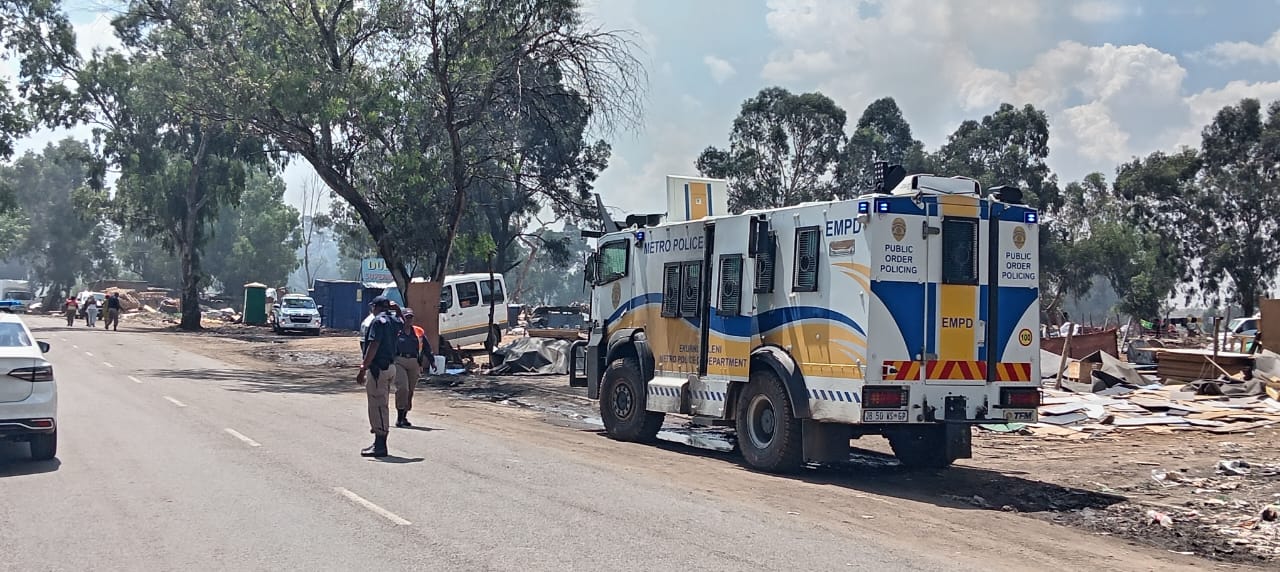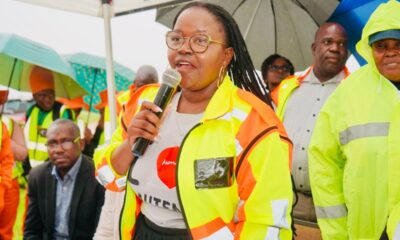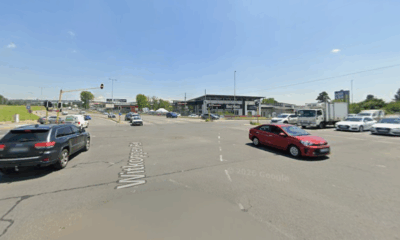News
“We Just Want Safety”: Brakpan Residents Plead for Relocation Amid Plastic City Evictions

In the dusty stretch of land known as Plastic City, just outside Brakpan, a quiet desperation hangs in the air. Amid the ruins of makeshift homes and abandoned tunnels, residents are packing what little they have, not out of choice, but because the City of Ekurhuleni has started clearing the area.
The city’s operation, aimed at removing unlawful structures and chasing out illegal miners (known locally as zama zamas), has left long-time dwellers feeling forgotten.
“We’re not the ones mining underground,” says community leader Maxwell John, his voice heavy with frustration. “We’re just trying to live. But now it feels like we’re being punished for something we didn’t do.”
A Settlement Built on Fragile Ground
Plastic City, once a scrapyard that turned into an informal settlement, sits on land riddled with sinkholes and hidden tunnels, remnants of years of illegal mining. The structures are mostly made from plastic sheets, wood, and metal scraps, offering little protection from the elements or danger below.
For years, the area has been the scene of violent turf wars between rival zama zama groups. Gunfire, explosions, and collapsing tunnels have become part of daily life. The City of Ekurhuleni says it had no choice but to intervene, calling the area a “ticking time bomb” for both residents and law enforcement.
But for those who’ve called it home, eviction feels like yet another blow.
“Yes, it’s dangerous,” John admits, “but this is where we’ve built our lives. If they want us out, they must take us somewhere safe. We just want a place where our children can sleep without fear.”
Between Law Enforcement and Livelihoods
Municipal officials argue that the crackdown is part of a broader plan to tackle illegal mining operations that have spread through Brakpan and other parts of the East Rand. These mining networks, often armed and operating deep underground, have been linked to organised crime, cable theft, and even fatalities.
However, residents say the city’s approach fails to distinguish between miners and ordinary families who have nowhere else to go.
The City of Ekurhuleni has not yet announced a concrete relocation plan, leaving many wondering what will happen once the demolitions are complete.
“They said they want to remove the illegal miners,” John says, “but what about us the people just trying to survive? They can’t leave us with nothing.”
A Broader Social Crisis
What’s unfolding in Plastic City mirrors a growing crisis across Gauteng, where housing shortages, unemployment, and poverty have pushed thousands into unsafe informal settlements.
According to housing advocates, relocations without proper planning risk deepening the cycle of displacement. Without clear timelines or alternative housing, families end up moving from one informal settlement to another trapped in a loop of instability.
On social media, the evictions have reignited debate about urban inequality. Some users sympathised with residents, calling for humane relocation, while others supported the city’s clean-up efforts.
“We can’t let people live on dangerous land forever,” one X (formerly Twitter) user wrote.
“But government must step up, eviction without a plan isn’t justice.”
The Call for a Fair Solution
For Maxwell John and many others still clinging to the remnants of Plastic City, the message to the city is simple: help us rebuild, don’t just remove us.
The pleas highlight a dilemma that has haunted South African municipalities for decades, how to balance law enforcement with human dignity.
Until Ekurhuleni finds a long-term solution, Plastic City remains a haunting reminder of what happens when poverty meets neglect: a place where people live on the edge, quite literally and where safety feels like a distant promise.
{Source: EWN}
Follow Joburg ETC on Facebook, Twitter , TikTok and Instagram
For more News in Johannesburg, visit joburgetc.com



























